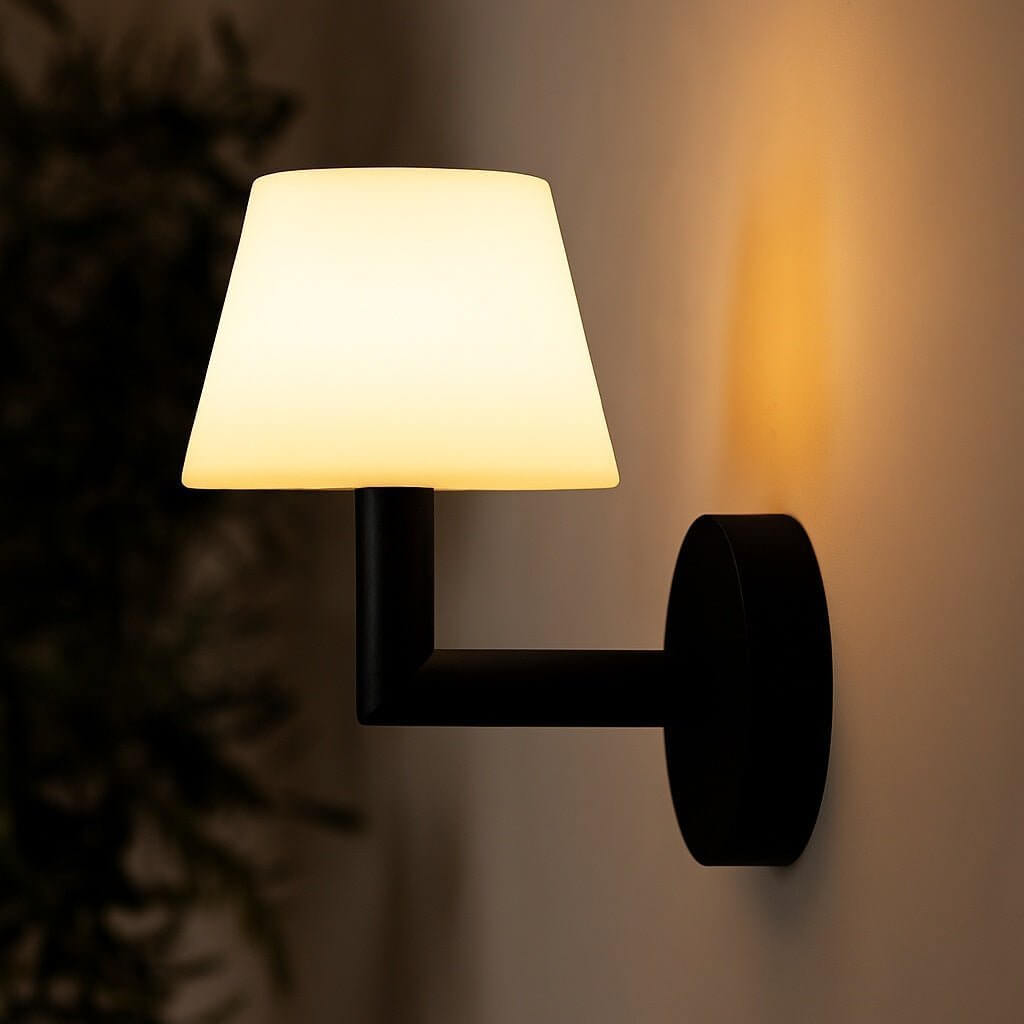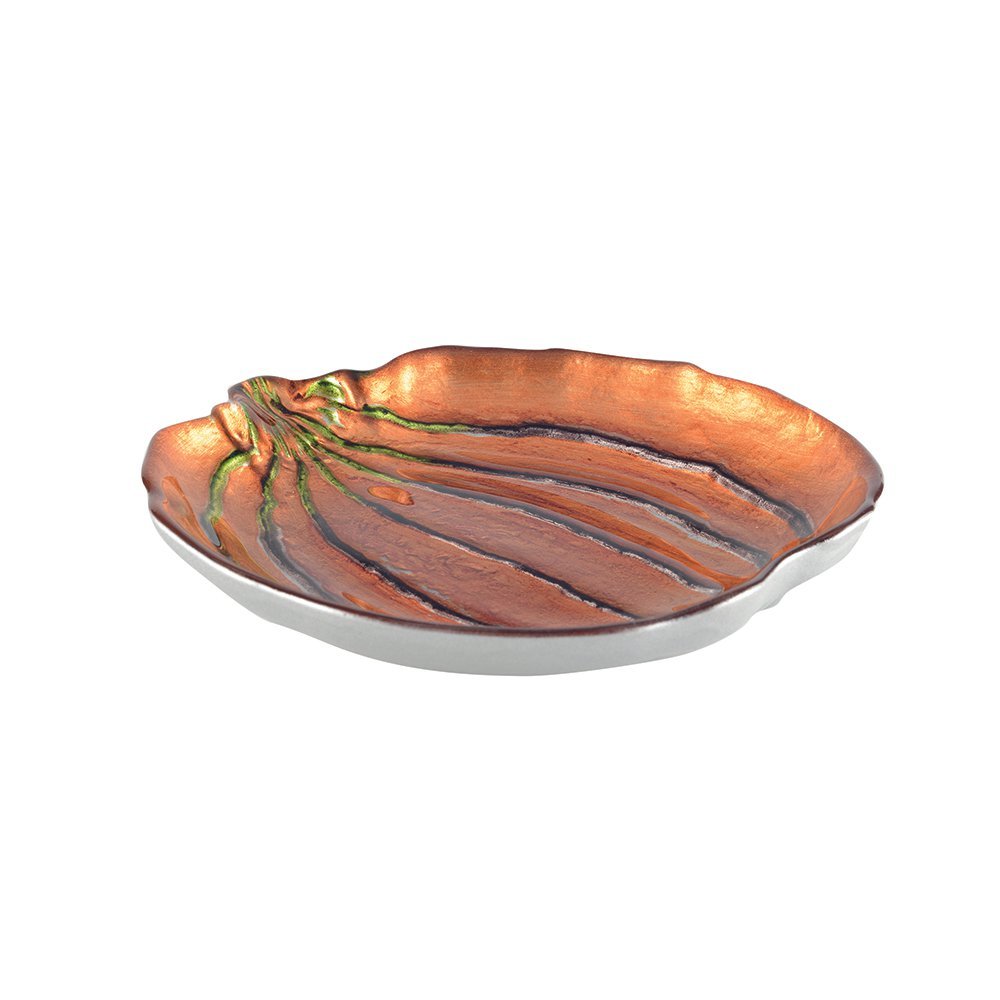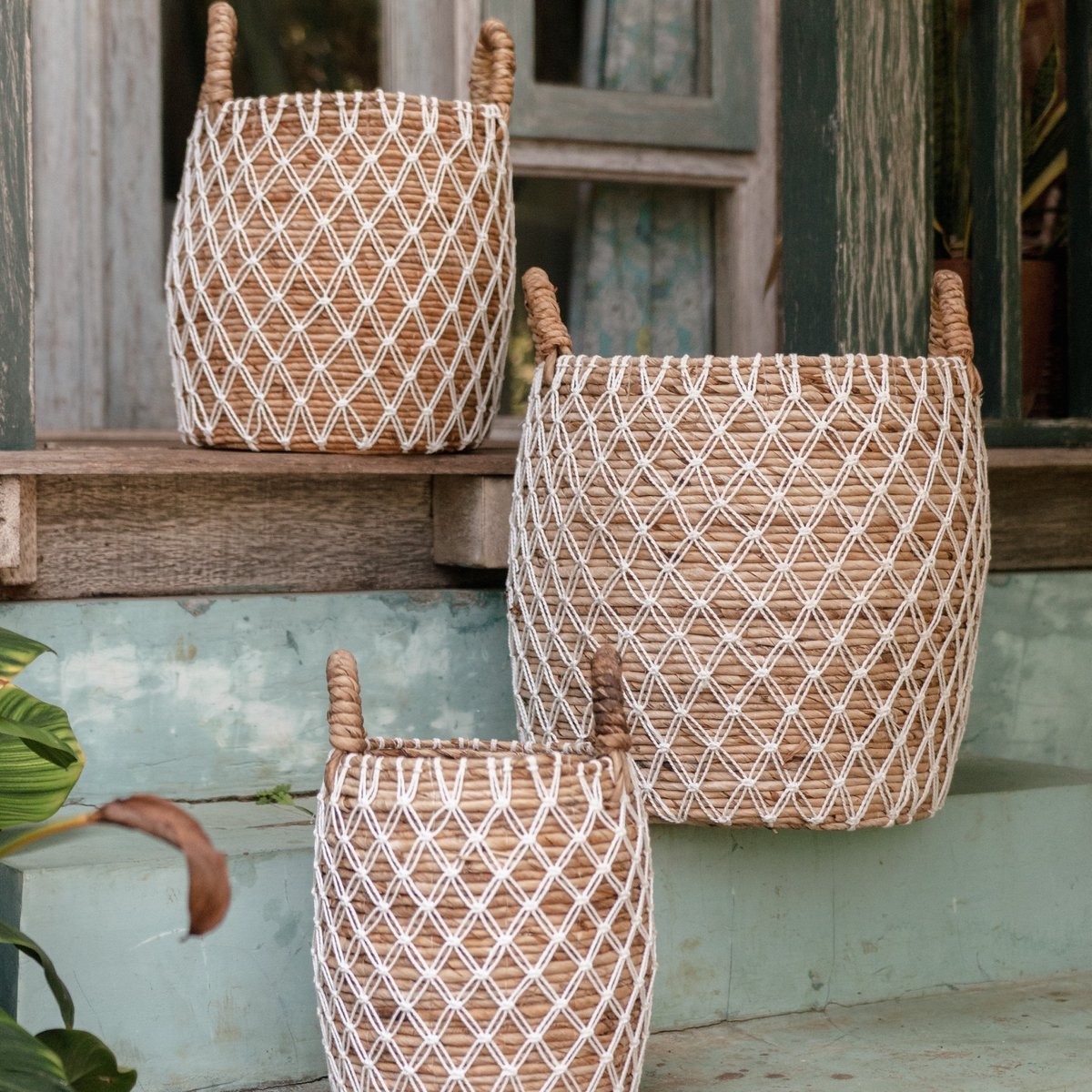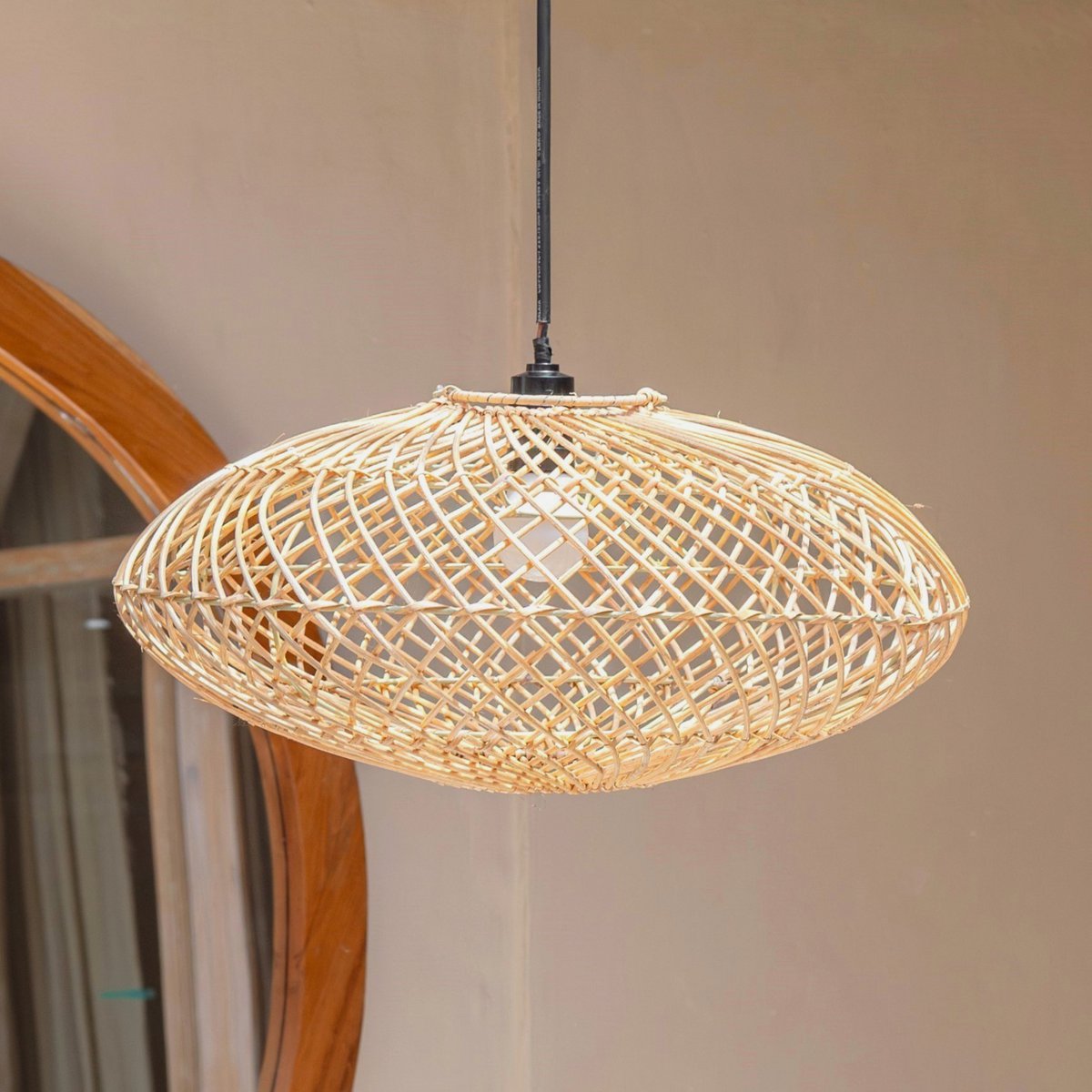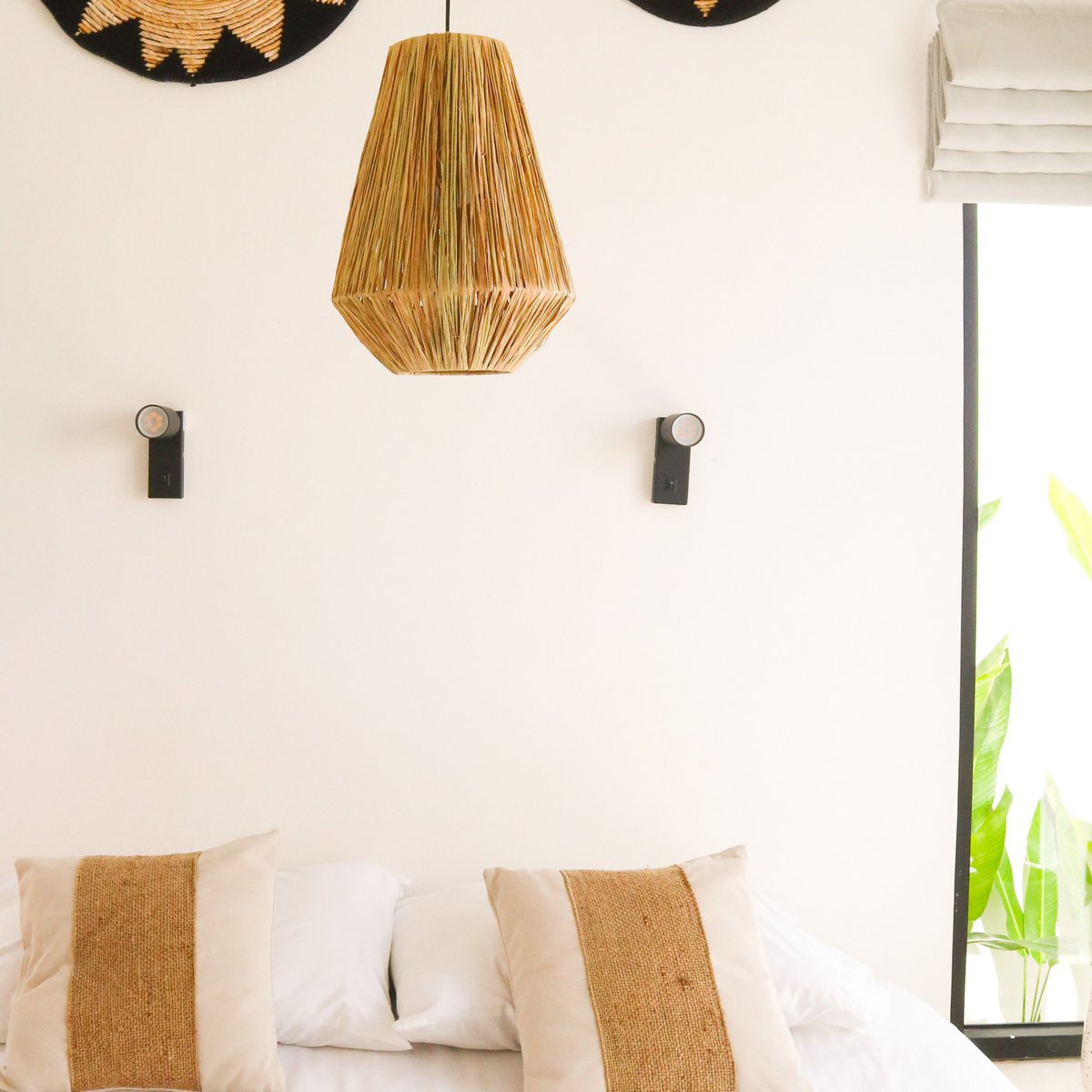Product description
Transform Ordinary Lighting into Natural Warmth
Before discovering the ENDAH Lampshade, your room might feel plain and uninspired. This handcrafted raffia pendant light instantly brings a tropical charm and soft, natural ambiance into your home. Its organic texture and warm tones elevate any space- from the bedside table to the dining nook- infusing it with comfort and style.
Elegant Design with a Tropical Touch
Imagine your home glowing with the golden hue of natural raffia lighting. The ENDAH lampshade is handwoven from finely cut raffia fibres around a sturdy metal frame, creating a delicate yet durable structure. Its narrow shape is ideal for parallel arrangements, enhancing the cozy atmosphere and adding an elegant boho touch to your living space.
Effortless Ambiance and Versatility
With its light weight of just 0.25 kg and dimensions of 25x34 cm, this handwoven lampshade fits seamlessly into various interiors. Whether used above the kitchen counter or as a statement light in the bedroom, ENDAH emits a soft, soothing glow that creates a relaxing environment. Its adaptable design makes it easy to match your decor style.
Sustainable Craftsmanship from Nature
Each eco-friendly lampshade is handwoven by skilled artisans in Southeast Asia using responsibly sourced raffia fibres. The material is harvested from naturally shed leaves, dried under the sun, and carefully crafted into artful designs. Every piece carries subtle variations, making your ENDAH lampshade a unique expression of sustainable beauty and craftsmanship.
Please note: The lampshade is sold without a cable and bulb, allowing you to choose the lighting components that best suit your style.
Each of our products is a unique handcrafted piece, and slight variations in size, color, and shape may occur due to the artisanal process and the natural character of the materials.
- Choosing a selection results in a full page refresh.
- Opens in a new window.

